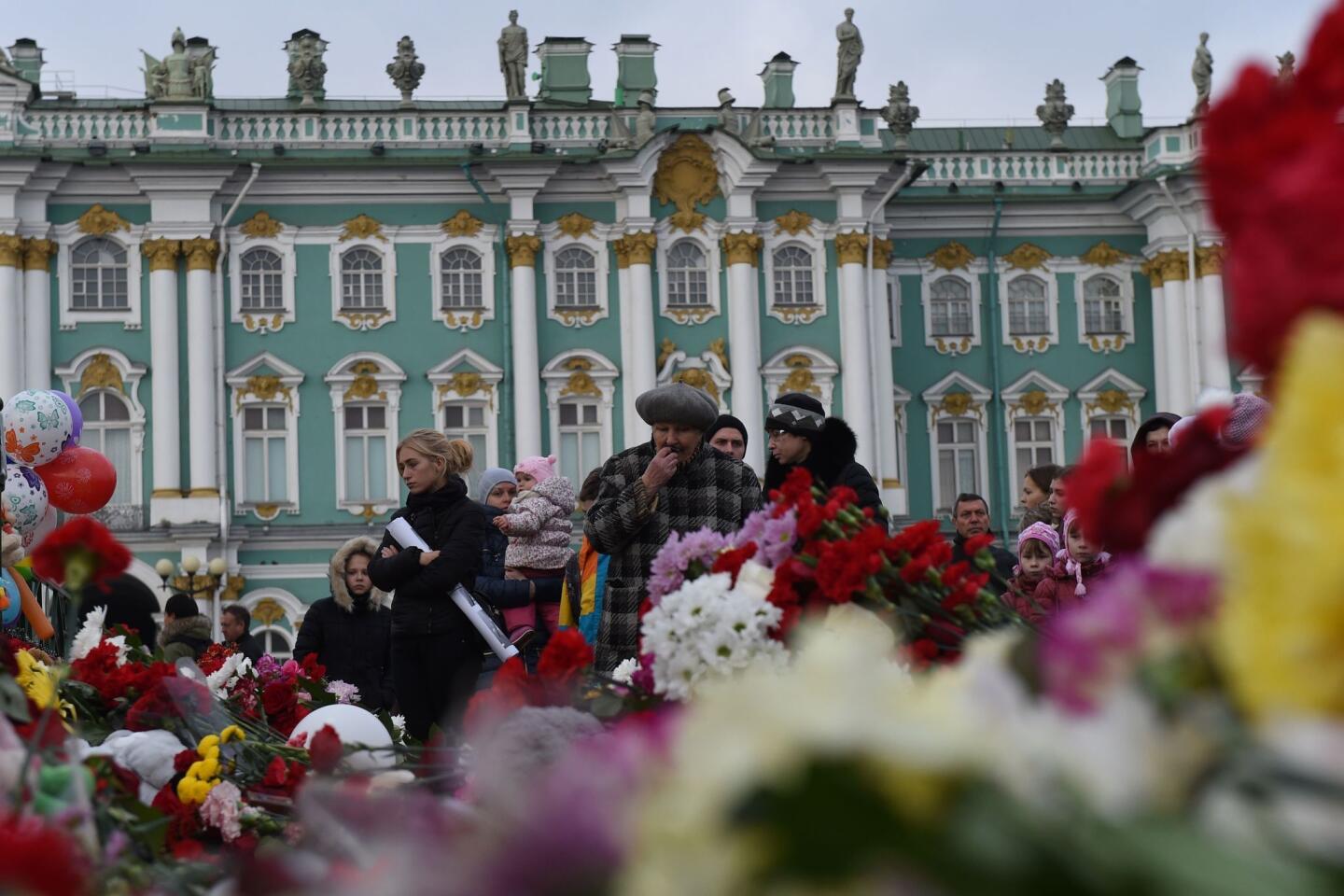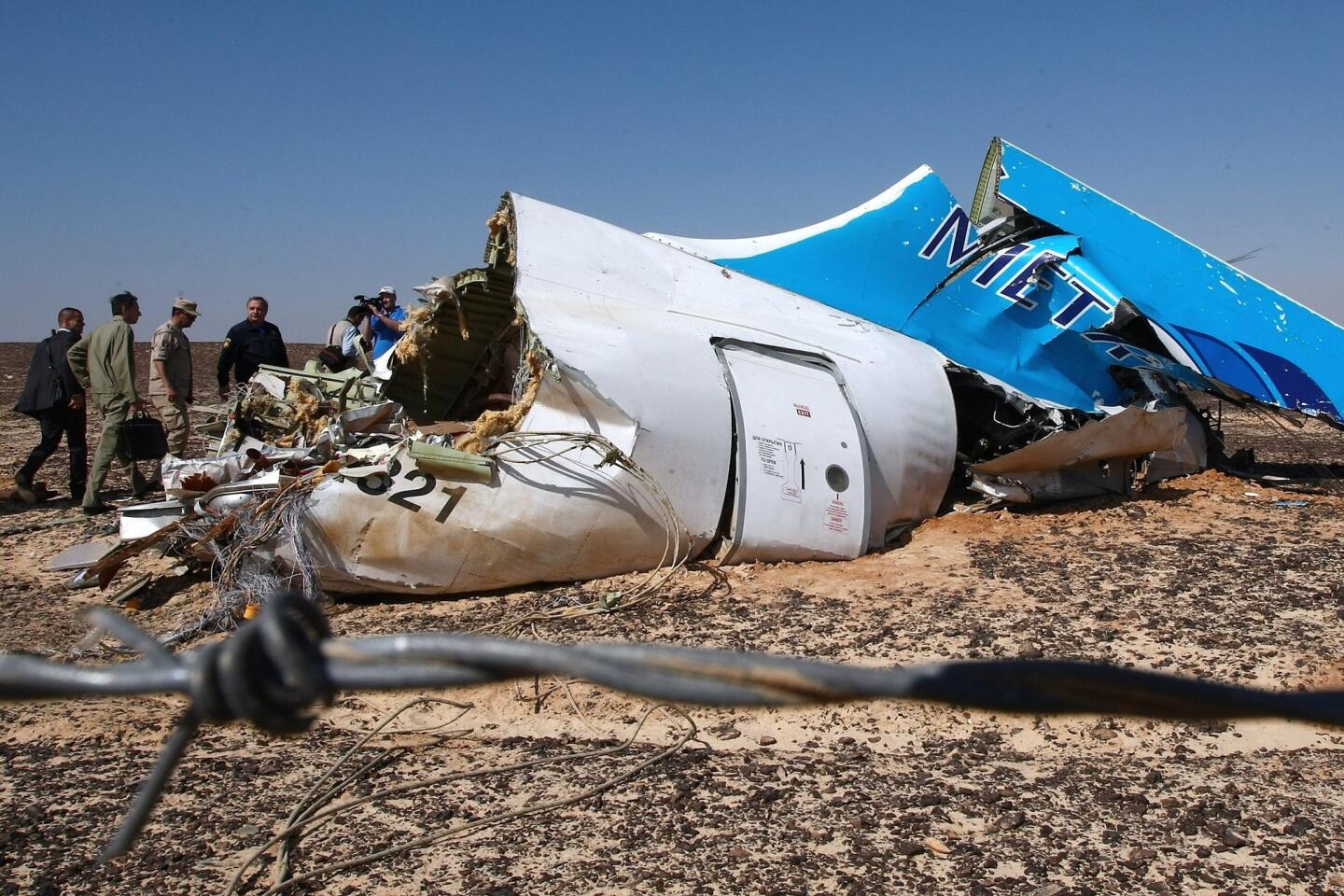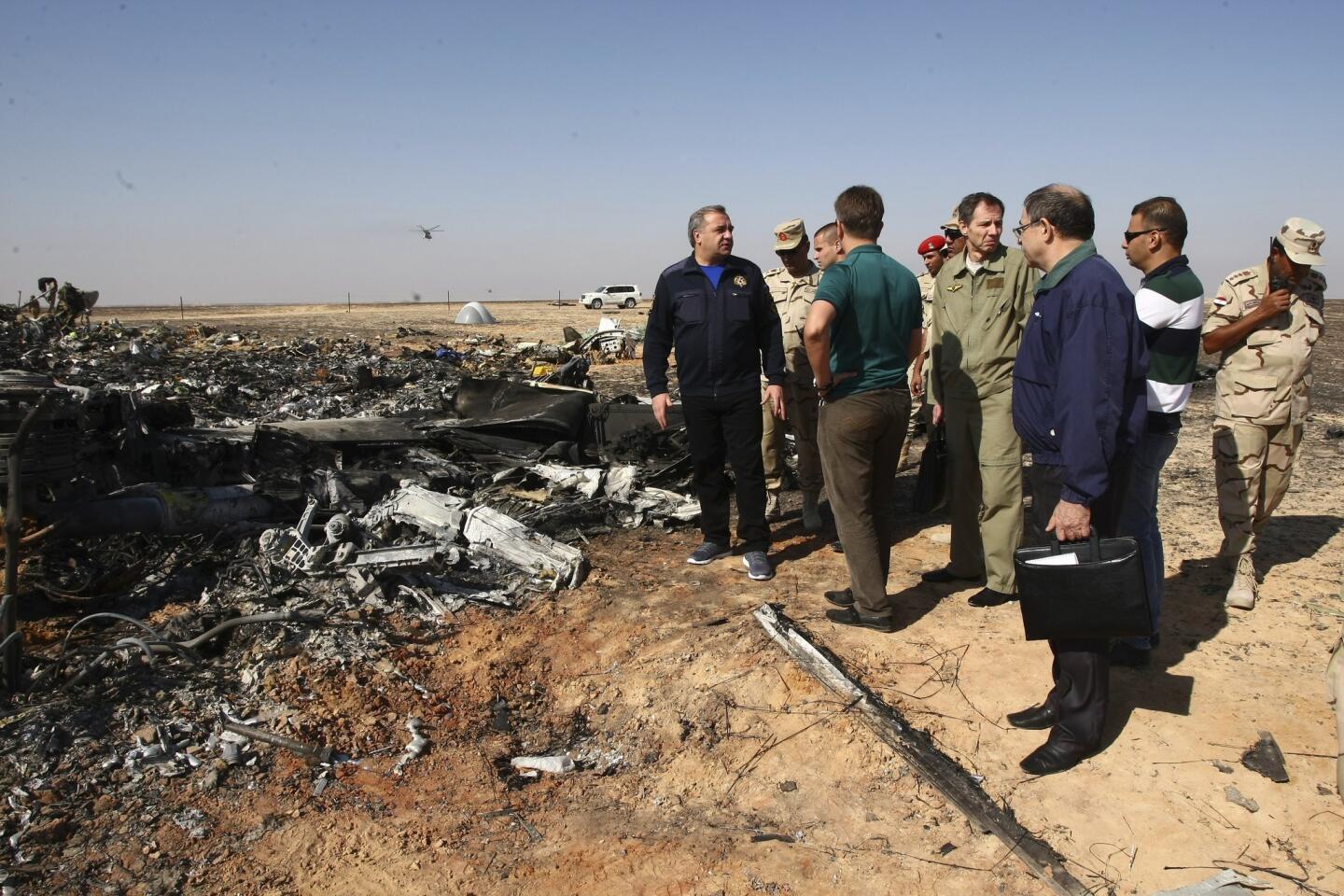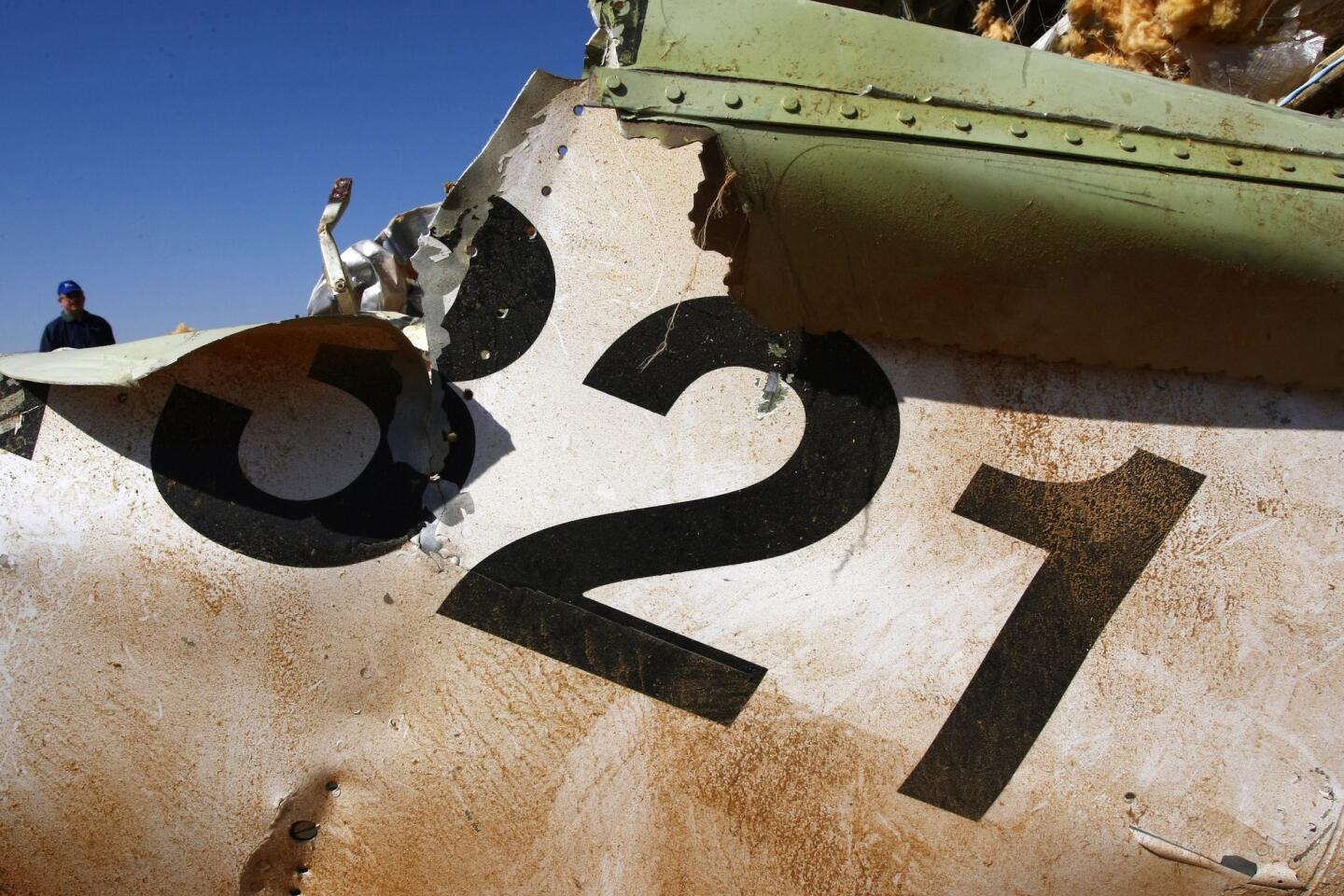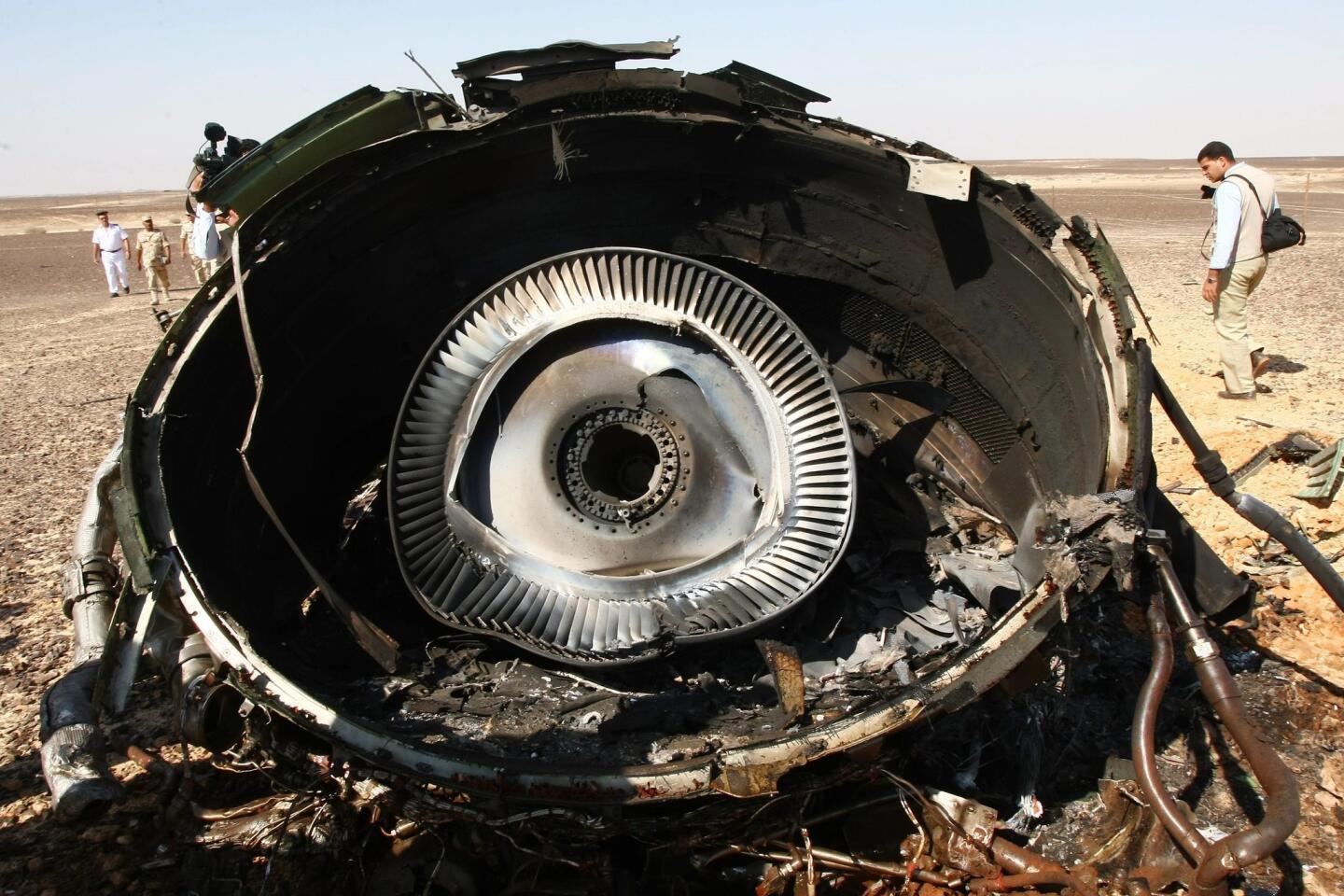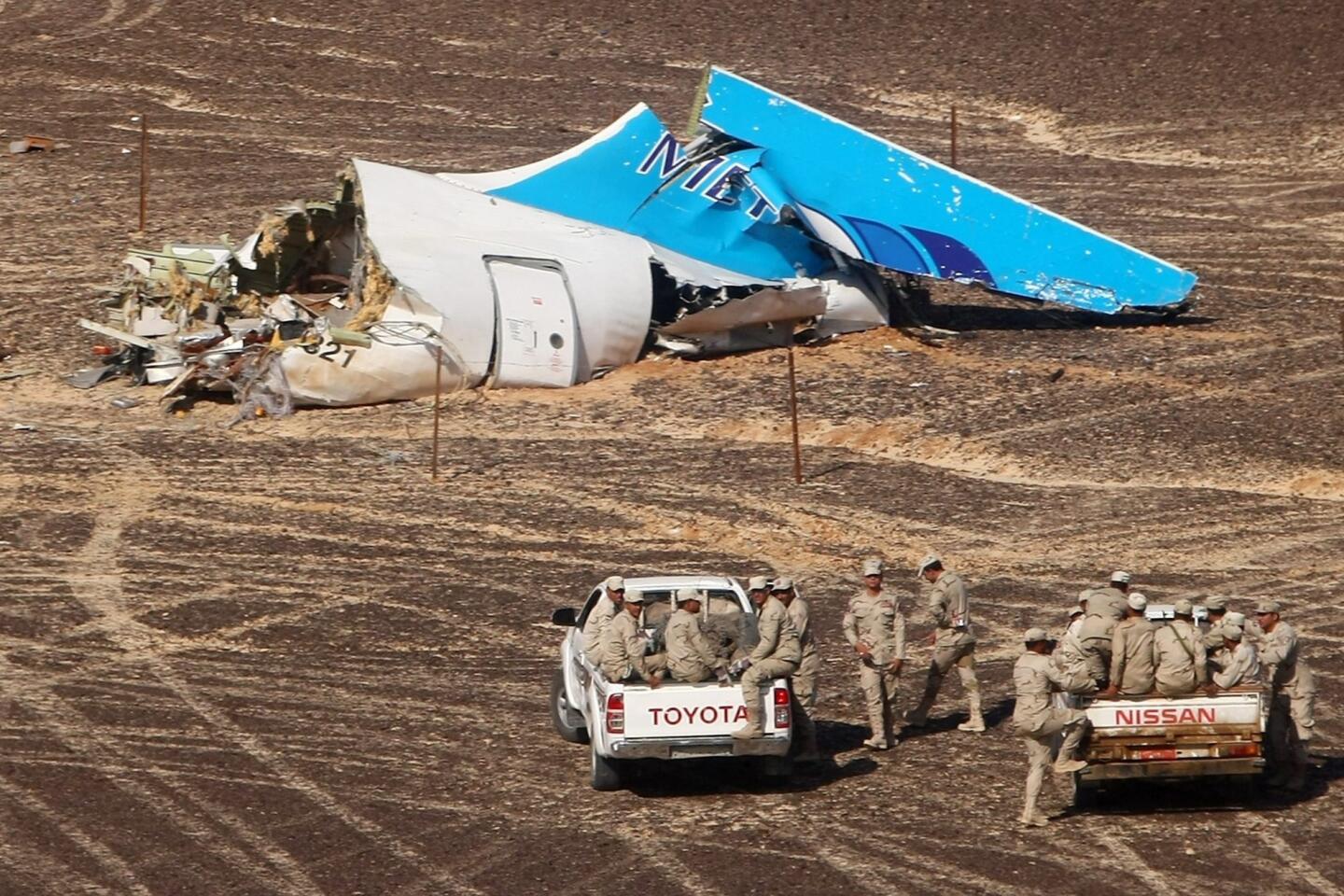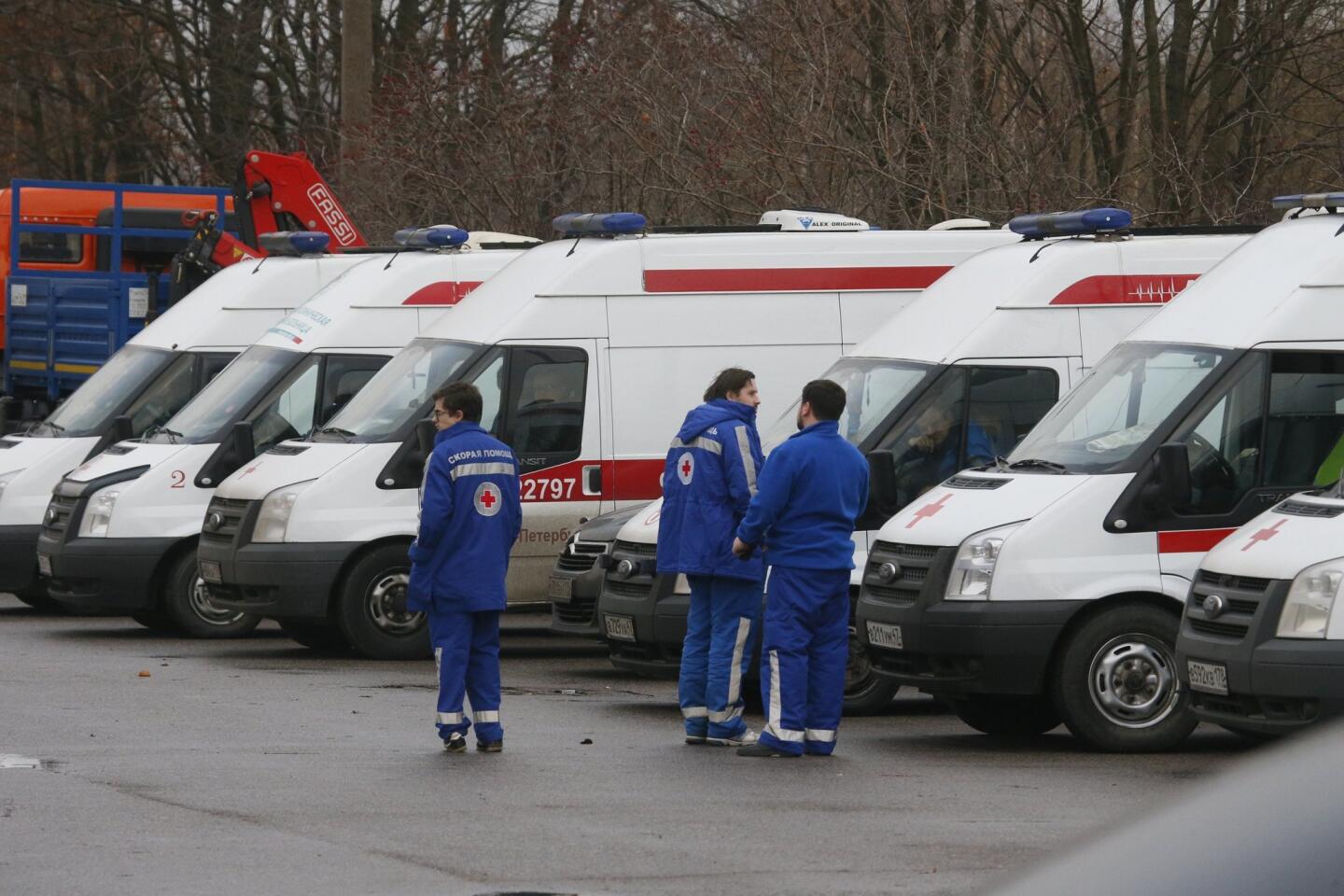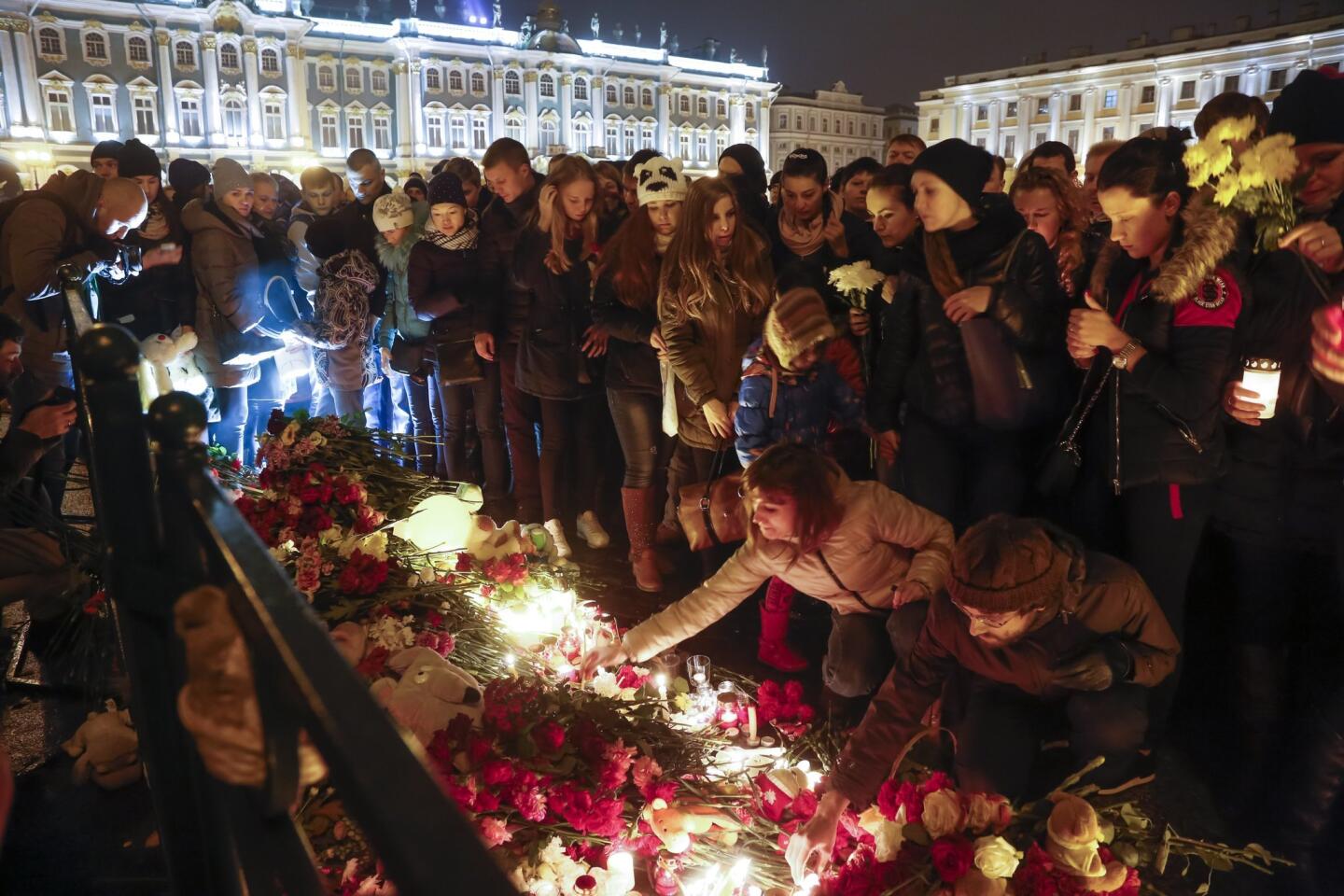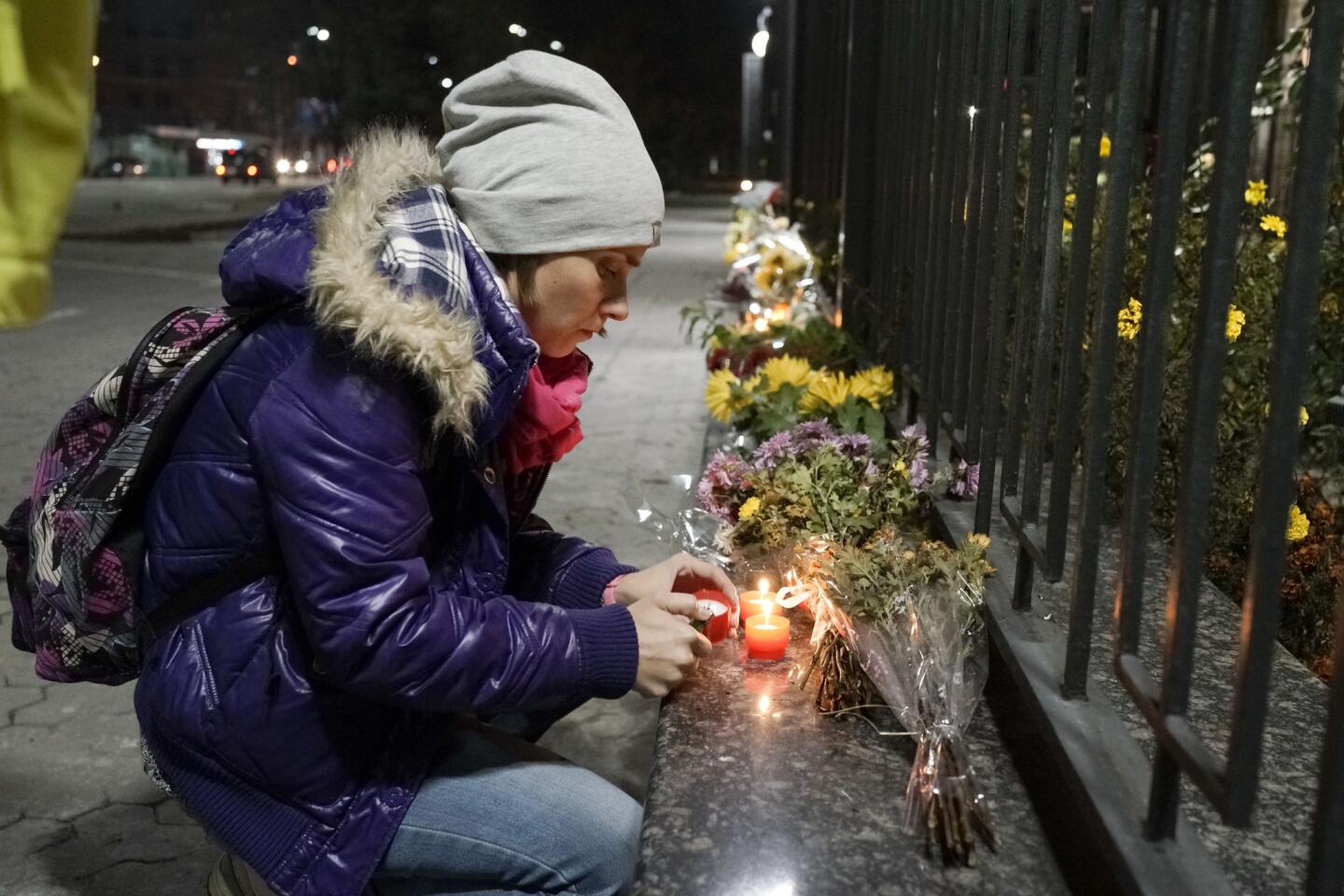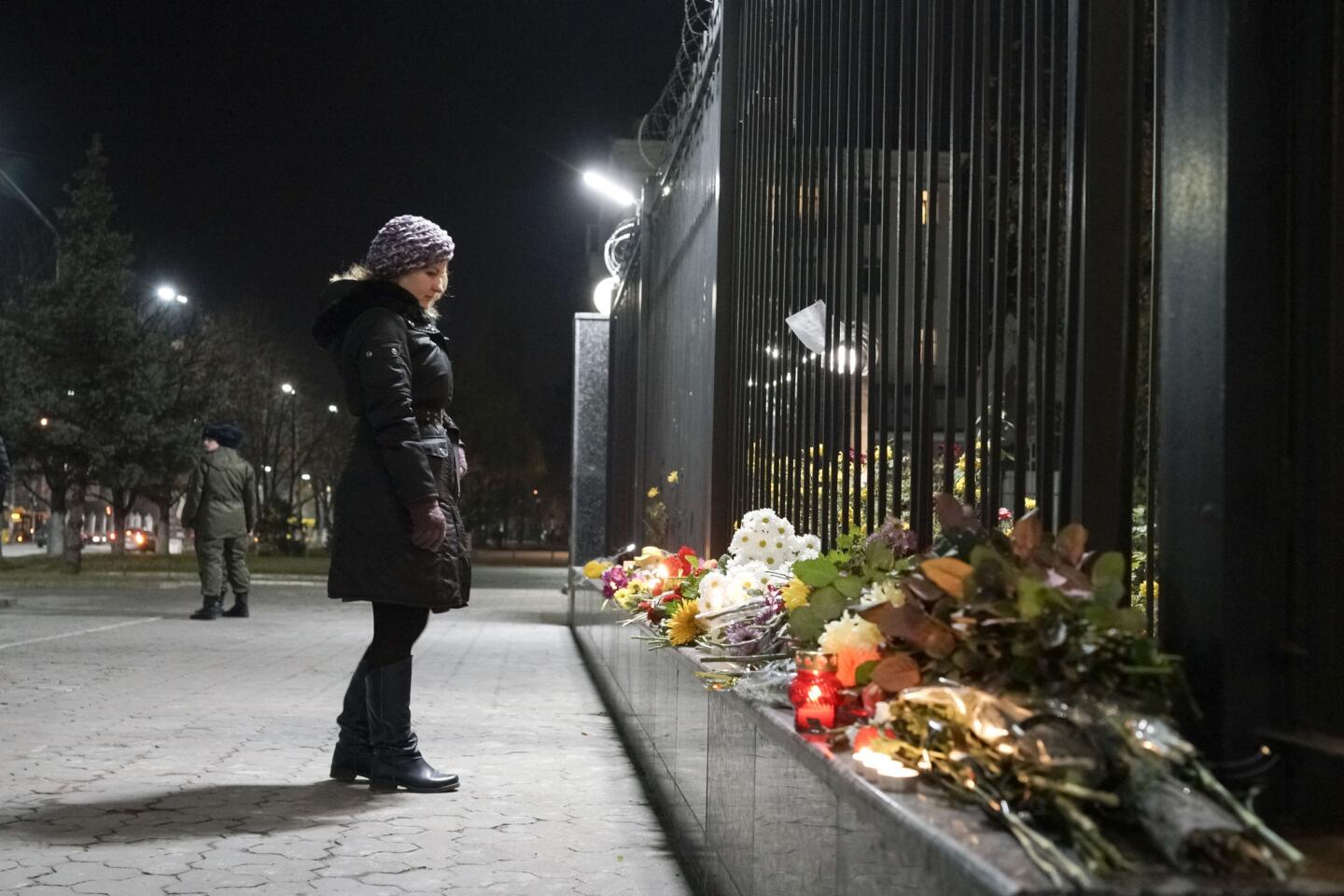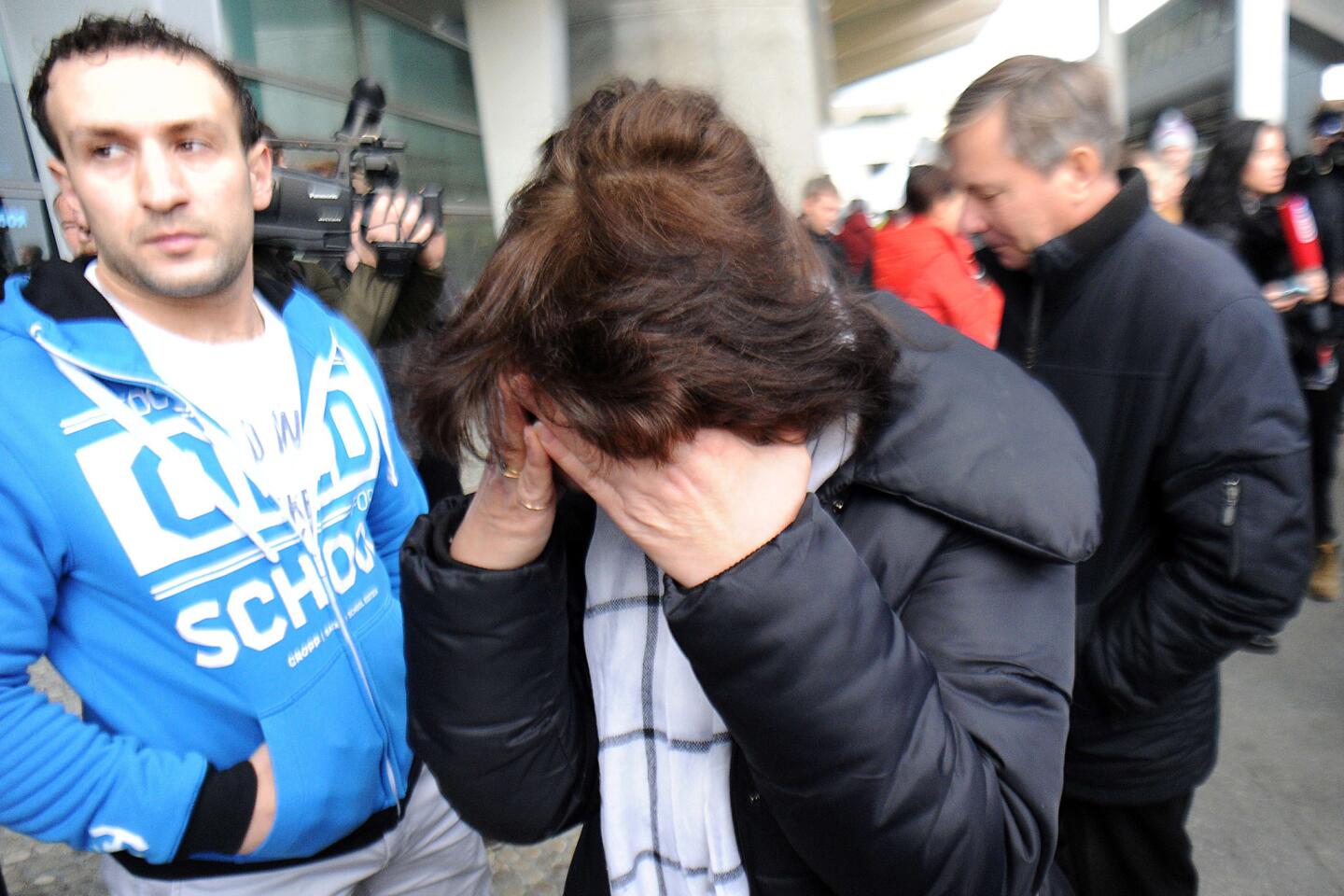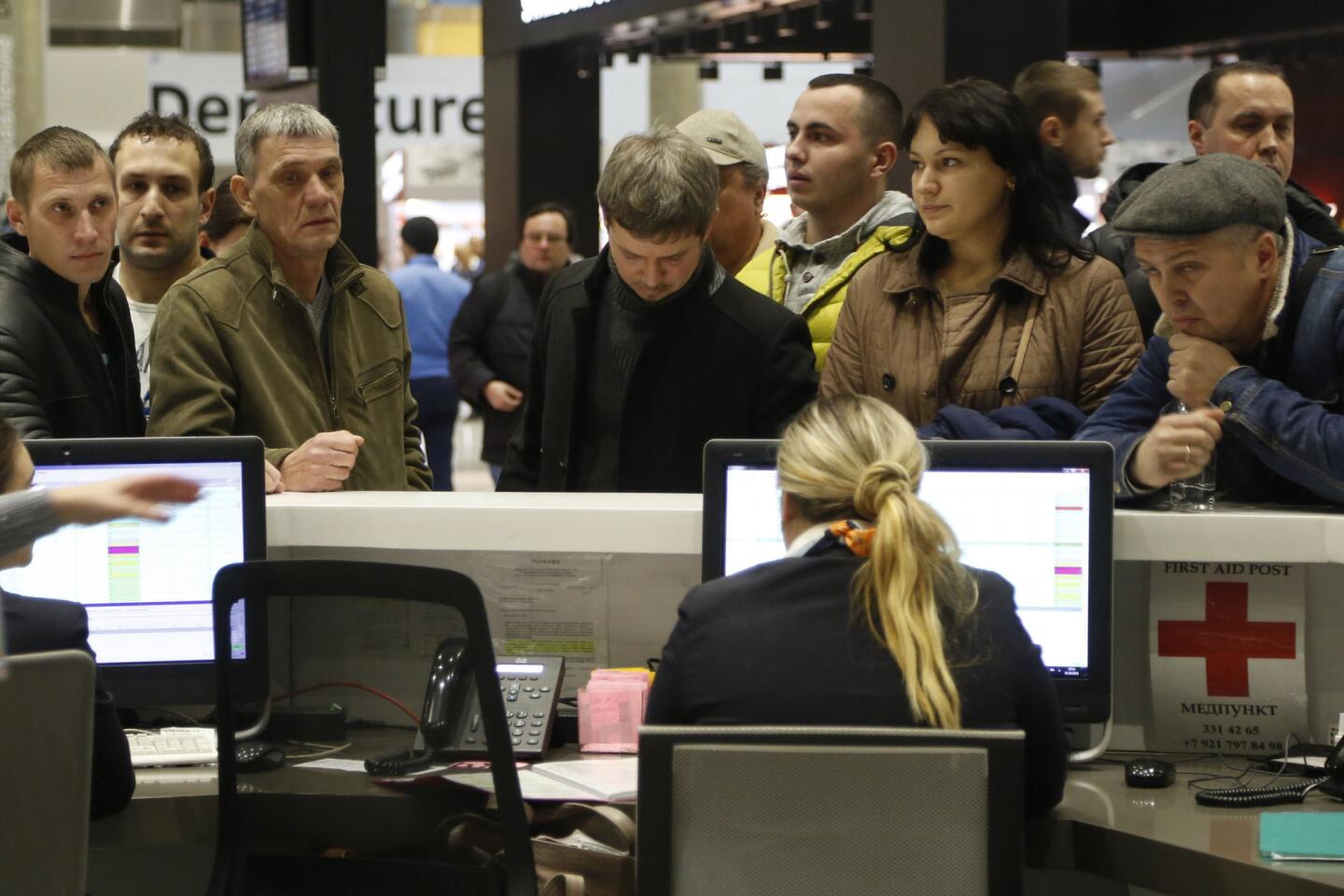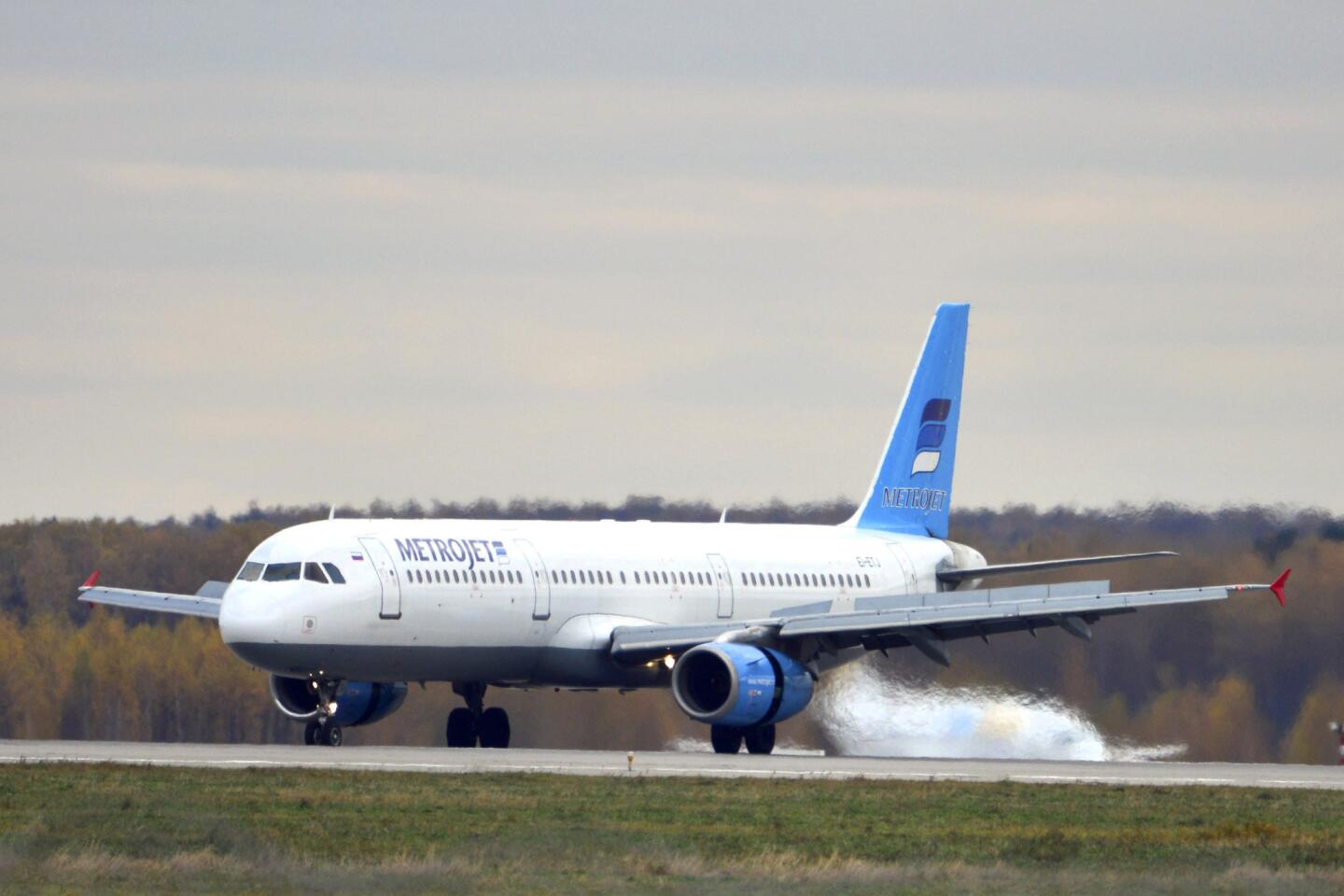Russian plane broke apart high above the Sinai Peninsula, official says
- Share via
The Russian plane that crashed in Egypt’s Sinai Peninsula over the weekend, killing all 224 people aboard, broke up high in the air, an official said Sunday, bolstering theories that the craft had a preexisting problem that led to structural failure.
The cause of Saturday’s crash remains unknown, however, and other ideas — including speculation that the St. Petersburg-bound Metrojet Airbus A321 plane may have been downed by a terrorist attack — continued to circulate.
“The disintegration of the fuselage took place in the air, and the fragments are scattered” across several square miles, Viktor Sorochenko, executive director of Russia’s Interstate Aviation Committee, told reporters Sunday.
The plane, whose passengers were largely Russian tourists, suddenly lost altitude and crashed 23 minutes after departing Egypt’s Sharm el Sheik, a Red Sea resort town popular with Russians seeking warmer weather.
The passenger list for the flight operated by Metrojet, an airline with offices in Moscow, consisted of 138 women, 62 men and 17 children, according to the Egyptian Foreign Ministry. Seven crew members were also aboard.
So far, 163 victims’ bodies have been recovered, as has the plane’s “black box” flight recorder, according to a statement issued by the Egyptian Cabinet on Sunday. Officials have begun sending bodies back to Russia.
While Egyptian and Russian searchers look for the rest of the dead, as well as more debris to analyze, aviation experts pored over the scant available information, hoping for clues that might explain the crash.
Reports emerged that the plane was involved in an accident in 2001, when its tail struck the ground during a landing at Cairo International Airport. After repairs, the jet took to the skies again. It is unclear whether that accident may have weakened the craft.
The plane was 18 years old at the time of Saturday’s crash — not exceptionally old for an aircraft, said Moscow-based test pilot Ivan Mazursky, who knew copilot Sergei Trukhachev.
“Sergei spoke highly of this plane,” although it changed hands several times in recent years, Mazursky said in a phone interview. “Sergei and the first pilot were experienced and disciplined…. I don’t believe it was their fatal mistake. It must have been something wrong with the plane, some faulty spare part or something.”
Within hours of the crash, Russian state television reported that before the flight, the copilot had complained to his family about the jet’s deficiencies. Trukhachev told his daughter in a phone call “that the technical condition of the aircraft left much to be desired,” his wife, Natalya Trukhacheva, told state television, according to the Associated Press.
But Metrojet, which runs 10 Airbus planes, said in a statement that the jet was serviced properly and that there were no complaints about its condition.
Before it began its final flight, the jet seemed to be in good shape, according to an Egyptian ground service official who spoke to the Associated Press on condition of anonymity because he was not authorized to speak to the press. He said he was part of the technical team that inspected the plane before it took off.
“We are all shocked. It was a good plane. Everything [was] checked out in 35 minutes,” the official said.
The Islamic State-linked militant group Sinai State claimed responsibility for the crash in a statement on Twitter, saying it attacked Russian “crusaders” on the jet in retaliation for Moscow’s bombings in Syria. Russia supports the government of Syrian President Bashar Assad and has recently carried out a campaign of airstrikes against Islamic State and other militants.
Russian Transportation Minister Maksim Sokolov quickly issued a rebuttal, telling Russia’s Interfax news agency that it “cannot be considered true.”
Igor Korotchenko, editor in chief of Russia’s National Defense magazine, was leery of the militants’ claim but did not rule out the possibility.
“I don’t believe the plane could be shot down at an altitude of over 30,000 feet by Islamic terrorists from the ground,” Korotchenko said in a phone interview. “They simply don’t have such antiaircraft missiles.”
However, he said, a bomb could have been planted in the plane before takeoff.
Since Saturday, multiple airlines have decided to reroute flights, avoiding the airspace over the Sinai Peninsula until they have more information about what took place.
Russians spent Sunday observing a day of mourning declared by President Vladimir Putin.
Flowers and candles have piled up at makeshift memorials, and local media reported that psychologists are working with victims’ relatives at Pulkovo airport in St. Petersburg.
Alexander Golenkov had planned to go to that airport Saturday to pick up his older brother, Vladimir, along with Vladimir’s wife, Victoria, and 4-year-old daughter, Diana, who were returning from a family trip to Egypt.
Now Golenkov is waiting for their bodies.
“Vladimir called me the night before the flight back from Egypt, said they had the happiest vacation in their life,” he said.
“He asked me what he could get for me,” Golenkov continued. “I said, ‘Nothing. Just come back safely.’”
Special correspondent Hassan reported from Cairo and Times staff writer Raab from Los Angeles. Staff writer Sergei L. Loiko in Moscow contributed to this report.
ALSO
Senate OKs budget and debt deal, sends measure to Obama
After runaway blimp debacle, fresh scrutiny of JLENS missile defense program
Man walking down the street in Colorado Springs shoots three people to death
More to Read
Sign up for Essential California
The most important California stories and recommendations in your inbox every morning.
You may occasionally receive promotional content from the Los Angeles Times.
